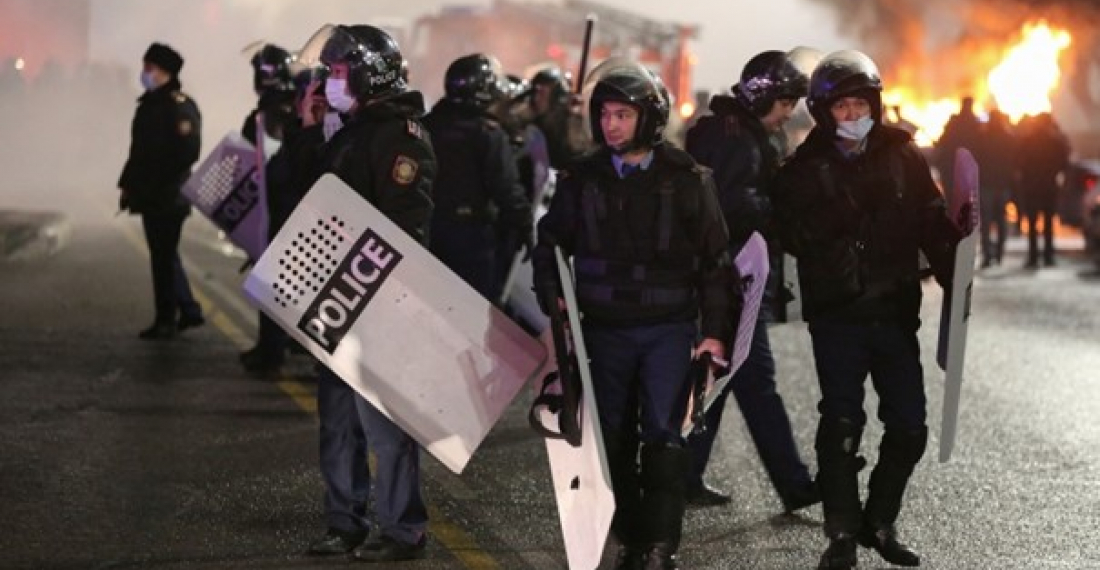Kazakh President Kasim Jomart Tokayev has dismissed his government after a wave of unprecedented demonstrations in the Central Asian republic, triggered by an increase in energy prices.
The resignation of the government was accepted in a presidential decree published on Wednesday (5 January). The decree also authorised the current first deputy prime minister, Alikhan Smailov, to act as interim prime minister, until a new government is appointed. Other Ministers also continue to serve in a caretaker capacity.
Earlier the president declared a state of emergency in a number of regions following demonstrations which saw clashes between police and protesters. According to a report by the BBC, police in Almaty, the country's biggest city, used tear gas to contain crowds after vehicles were set on fire.
Demonstrations began after authorities lifted price caps on petrol used for vehicles, causing consumer prices to surge. Kazakhstan is a major oil and gas producing country. President Tokayev tweeted late on Tuesday that the authorities would restore lower prices for the fuel "in order to ensure stability in the country".
Such public protests in Kazakhstan are very rare, and the spread of the protests across large parts of the country is unprecedented. However, the town of Zhanaozen, in Mangistau province, was the scene of deadly unrest in 2011 when at least 14 oil workers were killed in a police crackdown on a protest over pay and working conditions.
Observer consider the current crisis as the first big test for president Tokayev, who in 2019 replaced veteran Kazakh leader Nursultan Nazarbayev, who however remains an important political figure in the country in a role of senior statesman.







